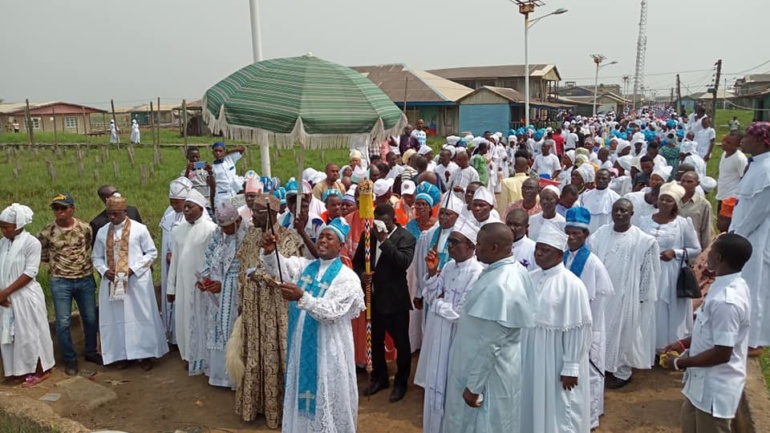
The transmission of leadership in Ayetoro was marked not by private negotiations or hereditary succession but through a solemn communal ritual: the presentation of the staff of authority. This staff, crafted from polished wood and devoid of ornate decoration, functioned as a material symbol of…
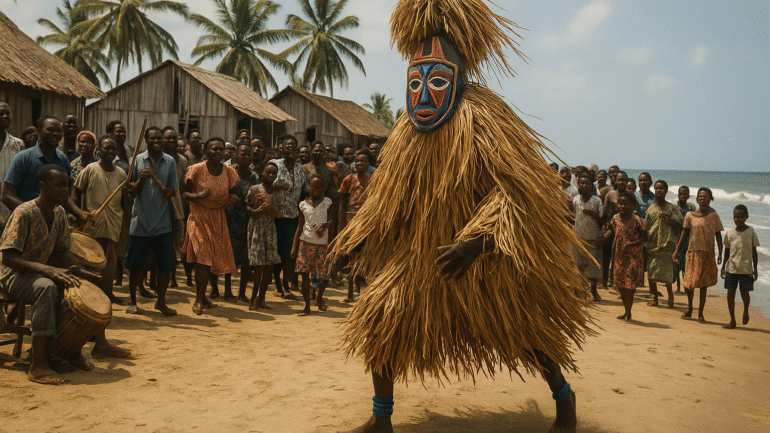
Among the cultural practices that enlivened communal life in Ayetoro, masquerade performances held during coastal festivals occupied a distinctive place. While the town was primarily defined by the Apostolic faith and its emphasis on spiritual purity, cultural expressions connected to Ilaje heritage remained visible in…
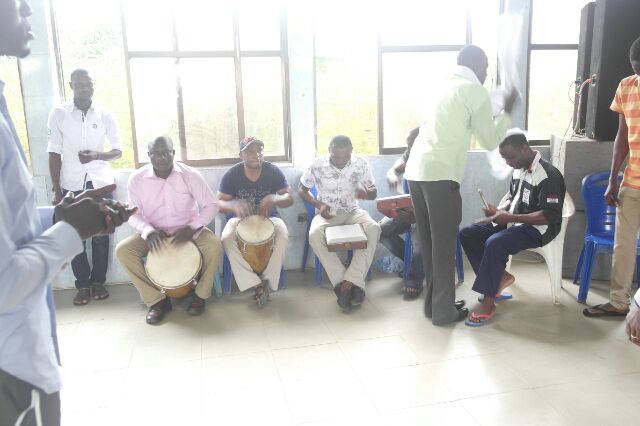
Music was a central feature of communal and spiritual life in Ayetoro, and at the core of this tradition were the instruments created by the skilled hands of local craftsmen. In the 1950s and 1960s, the town’s artisans produced a range of musical instruments —…
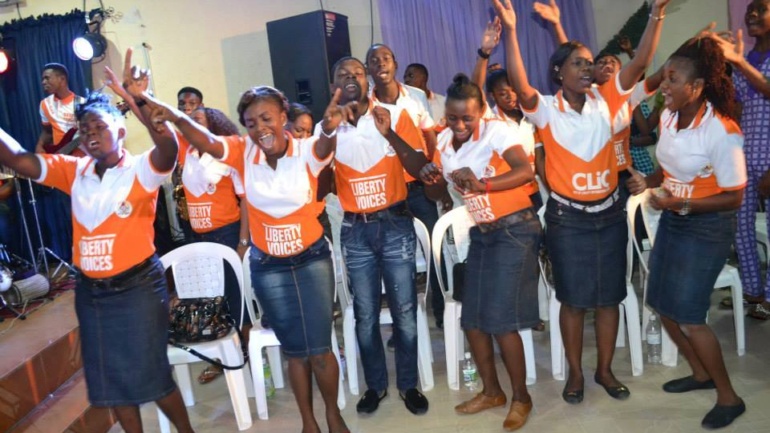
In Ayetoro, cultural expression was inseparable from community life. While worship and work defined much of the settlement’s rhythm, celebrations provided opportunities to affirm identity, transmit values, and strengthen bonds across generations. Among the most memorable features of these occasions were the performances of children,…

In Ayetoro, leadership was never a matter of personal ambition or private inheritance. It was a sacred trust, grounded in faith and affirmed by the entire community. At the heart of this transfer of responsibility was a simple yet profound ritual: the handing over of…

In the early years of Ayetoro, long before brick halls and wooden chambers were constructed, the Apostles often gathered beneath a simple thatched pavilion. Made from palm fronds, bamboo poles, and the labour of their own hands, this modest shelter became one of the most…

Leadership in Ayetoro was never a matter of private inheritance or political conquest. It was a covenantal act, affirmed by the people and sanctified by ritual. Among the most memorable events in the town’s history were the community processions that marked the installation of new…

At the heart of Ayetoro’s governance stood not a single ruler or chief, but the collective wisdom of its Council of Elders. This body, composed of respected men and women chosen for their integrity and devotion, guided the community through both ordinary affairs and extraordinary…

In 1950, only three years after the founding of Aiyetoro, the Apostles gathered in their white garments to hear the words of their leader, Oba Ethiopia O. Peter, the first Ogeloyinbo. The occasion was one of both solemnity and hope, as the young community sought…
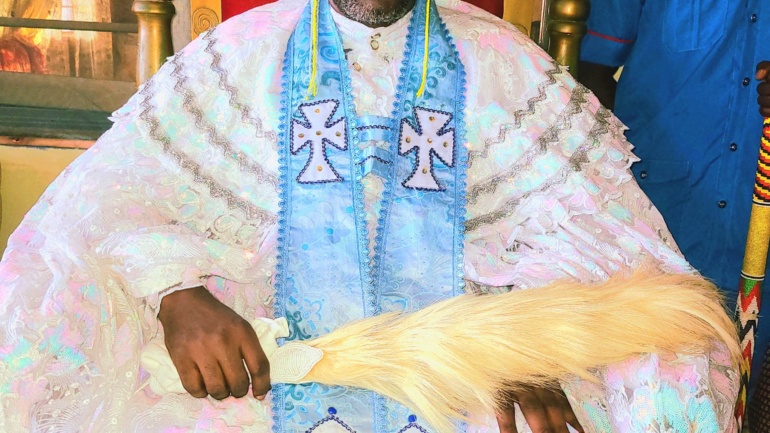
In the lineage of spiritual leadership that has guided Ayetoro since its founding, Prophet Oluwambe Ojagbohunmi stands as the current Ogeloyinbo, the “King of the White Robe.” His portrait, often displayed with quiet reverence, is more than an image of a man; it is a…

In Ayetoro, twins were not only children; they were blessings. To see a mother carrying twins on her back was to witness joy multiplied, a sign of abundance and divine favour. In the 1950s and 1960s, such moments were often marked by song, as neighbours…

In Ayetoro of the 1950s and 1960s, life was not defined only by worship and work. It was also full of play, energy, and joy. Among the most cherished pastimes of the town’s young people was football, played not on grass fields or manicured pitches,…
